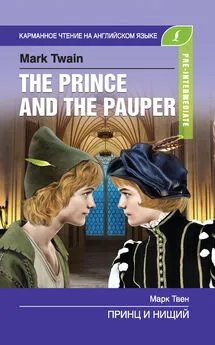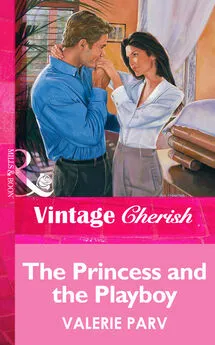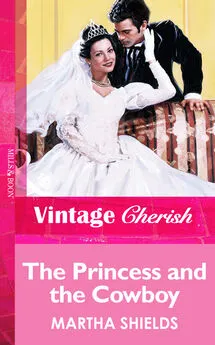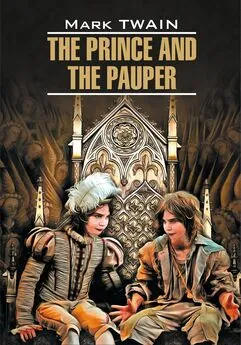Oscar Wilde - The Happy Prince and Ohter Tales
- Название:The Happy Prince and Ohter Tales
- Автор:
- Жанр:
- Издательство:неизвестно
- Год:неизвестен
- ISBN:нет данных
- Рейтинг:
- Избранное:Добавить в избранное
-
Отзывы:
-
Ваша оценка:
Oscar Wilde - The Happy Prince and Ohter Tales краткое содержание
The Happy Prince and Ohter Tales - читать онлайн бесплатно полную версию (весь текст целиком)
Интервал:
Закладка:
“It is quite evident (совершенно очевидно) then that you have no sympathy in your nature (что в вашем характере совершенно нет сострадания; sympathy — симпатия; сочувствие, сострадание) ,” said the Water-rat.
“I am afraid (боюсь) you don’t quite see the moral of the story (что вы не совсем поняли мораль этой истории; to see — видеть; понимать, сознавать) ,” remarked the Linnet (заметила Коноплянка) .
“The what (что /не поняла/) ?” screamed the Water-rat (завопила Водяная Крыса; to scream — пронзительно кричать, вопить) .
“The moral (мораль) .”
“Do you mean to say (вы что, хотите сказать; to mean — иметь в виду, подразумевать) that the story has a moral (что в этой истории есть мораль) ?”
“Certainly (конечно) ,” said the Linnet.
pause [pO:z ] evident ['evid(ə)nt ] moral ['mOrə l]
“Well?” said the Water-rat, after a long pause.
“Well, that is the end,” said the Linnet.
“But what became of the Miller?” asked the Water-rat.
“Oh! I really don’t know,” replied the Linnet; “and I am sure that I don’t care.”
“It is quite evident then that you have no sympathy in your nature,” said the Water-rat.
“I am afraid you don’t quite see the moral of the story,” remarked the Linnet.
“The what?” screamed the Water-rat.
“The moral.”
“Do you mean to say that the story has a moral?”
“Certainly,” said the Linnet.
“Well, really (ну, по правде) ,” said the Water-rat, in a very angry manner (сказала Водяная Крыса, очень сердито: «в очень сердитой манере»; manner — метод, способ; манера) , “I think (я полагаю) you should have told me that (вам бы следовало сказать об этом; to tell (told)) before you began (до того, как вы начали /свой рассказ/; to begin (began, begun)) . If you had done so (если бы вы это сделали) , I certainly would not have listened to you (я бы уж, несомненно, не стала бы вас слушать) ; in fact, I should have said ‘Pooh,’ (на самом деле, я бы сказала «фу») like the critic (подобно тому критику) . However, I can say it now (тем не менее, я могу сказать так и сейчас) ”; so he shouted out “Pooh” (и она прокричала «Фу») at the top of his voice (во весь голос/во все горло; top — верхушка; высшая степень) , gave a whisk with his tail (быстро махнула своим хвостом; to give (gave, given) +сущ. = означает действие, соответствующе значению существительного; whisk — веничек; легкое быстрое движение) , and went back into his hole (и вернулась в свою нору; to go (went, gone) back; hole — дыра; нора, берлога) .
manner ['mænə ] critic ['kritik ] whisk [wisk ]
“Well, really,” said the Water-rat, in a very angry manner, “I think you should have told me that before you began. If you had done so, I certainly would not have listened to you; in fact, I should have said ‘Pooh,’ like the critic. However, I can say it now”; so he shouted out “Pooh” at the top of his voice, gave a whisk with his tail, and went back into his hole.
“And how do you like the Water-rat (и как вам нравится эта Водяная Крыса) ?” asked the Duck (спросила Утка) , who came paddling up some minutes afterwards (которая медленно подплыла несколько минут спустя; to paddle — медленно грести; шлепать по воде, плескаться) . “He has a great many good points (у нее есть очень много хороших черт = достоинств; point — точка; отличительная, характерная черта) , but for my own part (но что касается меня: «с моей стороны»; part — часть; сторона) I have a mother’s feelings (во мне развиты: «у меня есть» материнские чувства) , and I can never look at a confirmed bachelor (и я вообще не могу смотреть на убежденного холостяка /в переводе можно было бы переделать: на закоренелую старую деву/; to confirm — подтверждать, confirmed — хронический, убежденный, закоренелый) without the tears coming into my eyes (без того, чтобы слезы не наворачивались у меня на глазах; to come (came, come) — приходить; появляться, возникать) .”
“I am rather afraid (я даже боюсь) that I have annoyed him (что я надоела ей/рассердила ее; to annoy — досаждать, докучать, надоедать) ,” answered the Linnet (ответила Коноплянка) . “The fact is (дело в том) , that I told him a story with a moral (что я рассказала ей историю с моралью) .”
“Ah! that is always a very dangerous thing to do (ах, это всегда очень опасное занятие; thing — вещь; дело, поступок) ,” said the Duck (сказала Утка) .
And I quite agree with her (и я полностью согласен с ней) .
paddle ['pædl ] afterwards ['α:ftəwəd(z) ] confirmed [kən'fə:md ]
bachelor ['bæt∫(ə)lə ] annoyed[ə'nOid ]
“And how do you like the Water-rat?” asked the Duck, who came paddling up some minutes afterwards. “He has a great many good points, but for my own part I have a mother’s feelings, and I can never look at a confirmed bachelor without the tears coming into my eyes.”
“I am rather afraid that I have annoyed him,” answered the Linnet. “The fact is, that I told him a story with a moral.”
“Ah! that is always a very dangerous thing to do,” said the Duck.
And I quite agree with her.
The Remarkable Rocket
THE King's son was going to be married (сын Короля собрался жениться: «быть/стать женатым»; to marry — жениться, выходить замуж) , so there were general rejoicings (по этому поводу были повсеместные празднования; to rejoice — радовать(ся), rejoicing — веселье, праздник) . He had waited a whole year for his bride (он ждал свою невесту целый год) , and at last she had arrived (и наконец она приехала; to arrive — прибывать) . She was a Russian Princess (она была Русская Принцесса) , and had driven all the way from Finland (и она проехала весь путь из Финляндии; to drive (drove, driven) — водить, ехать) in a sledge drawn by six reindeer (в санях, запряженных шестеркой северных оленей; to draw (drew, drawn) — тащить, волочить, перемещать) . The sledge was shaped (сани имели форму; shape — форма, очертание, to shape — придавать форму) like a great golden swan (/похожую на/ большого золотистого лебедя) , and between the swan's wings (и между крыльев лебедя) lay the little Princess herself (возлежала сама маленькая Принцесса; to lie (lay, lain) — лежать) .
rejoicing [ri'dζOisiŋ ] princess["prin'ses ] reindeer ['reindiə ]
THE King's son was going to be married, so there were general rejoicings. He had waited a whole year for his bride, and at last she had arrived. She was a Russian Princess, and had driven all the way from Finland in a sledge drawn by six reindeer. The sledge was shaped like a great golden swan, and between the swan's wings lay the little Princess herself.
Her long ermine cloak (ее длинная шуба из горностая; cloak — накидка, пальто) reached right down to her feet (была длиной: «доходила» до самых ее ножек; to reach — протягивать, простираться) , on her head (на ее голове) was a tiny cap of silver tissue (была крошечная шапочка из серебряной парчи; tissue — тонкая дорогая ткань с золотыми или серебряными нитями) , and she was as pale as the Snow Palace (и она была так же бледна, как Снежный Дворец) in which she had always lived (в котором она всегда жила) . So pale was she (она была настолько бела лицом: «бледной») that as she drove through the streets (что пока она проезжала по улицам; to drive (drove, driven)) all the people wondered (все люди удивлялись; to wonder — интересоваться, изумляться) . `She is like a white rose (она похожа на белую розу; like — подобный, похожий) !' they cried (восклицали они; to cry — кричать, восклицать) , and they threw down flowers on her (и они бросали ей: «на нее» цветы; to throw (threw, thrown) — бросать, кидать) from the balconies (с балконов) .
Читать дальшеИнтервал:
Закладка:
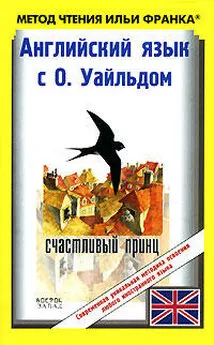
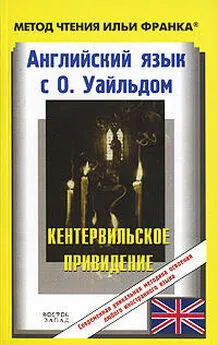
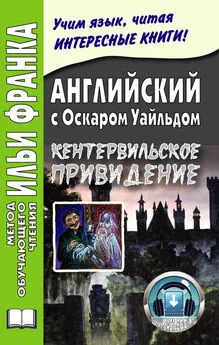
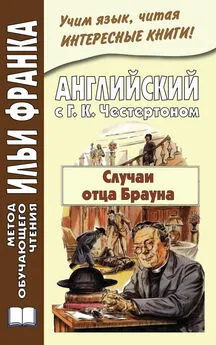
![О Генри - Принцесса и пума [The Princess and the Puma]](/books/1076182/o-genri-princessa-i-puma-the-princess-and-the-pum.webp)

